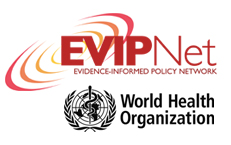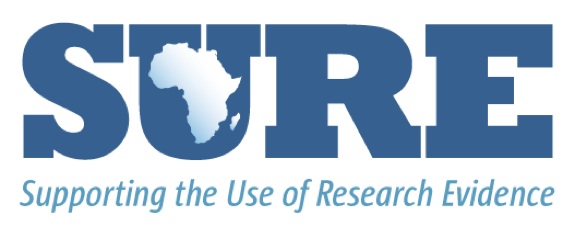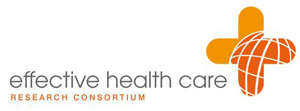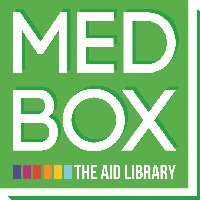HEART – Health & Education Advice & Resource Team
“HEART helps time pressured decision-makers better understand, interpret and apply health, nutrition and education evidence.”
Organization:
a consortium of leading organizations in international development, health, nutrition and education (e.g. LSTM, IDS, FHI 360, funded by UK Aid
Year: started in November 2012
Purpose: Aim to support the use of evidence

Content:
- HEART Helpdesk: research service synthesizing relevant evidence to address specific policy questions. Report includes a brief literature review with summaries and comments from subject experts
- Topic Guides: e.g. on nutrition highlighting the latest body of evidence
- Assignment reports of short-term technical support (e.g. reviews, evaluations)
- Document library: summaries and links to editorially-selected publications on key themes of health, education and nutrition (documents are sourced from academic research, policy papers and global development organizations).
EVIPNet Virtual Health Library - WHO
Organisation: WHO
Purpose:
- Virtual library to provide quick and easy access to evidence-informed decisions about health issues and specifically health systems in low and middle income countries.
Content:
- Database of systematic reviews, policy briefs, and others relevant sources of knowledge and valuable documents.

Evidence based Policy Briefs - WHO
Organization: SURE (Supporting the Use of Research Evidence)
- Builds on and supports the Evidence-Informed Policy Network (EVIPNet) in Africa and the Region of East Africa Community Health (REACH) Policy Initiative.
- Involves teams of researchers and policymakers in seven African countries and is supported by research teams in three European countries and Canada.
- Funded by the European Commission’s 7th Framework Programme.
Purpose: To support WHO to strengthen evidence-informed policy making in Africa[1].
Content:
- Evidence Briefs are based on global research evidence (from systematic reviews) and local evidence to inform policy dialogue on health policies and programmes.
- The briefs include a description of a policy problem, summary of the best available evidence, clarification on the size and nature of the problem, description of the likely impacts of key options for addressing the problem, and information about potential barriers to implement the options and strategies.
[1] Focus on Burkina Faso, Cameroon, Central African Republic, Ethiopia, Mozambique and Zambia and the REACH (Regional East African Community Health) Policy Initiative

Access to publications on Reproductive Health - POPLINE (K4H)
Organization:
- Managed by the "Knowledge for Health (K4Health) Project at the Johns Hopkins Bloomberg School of Public Health / Center for Communication Programs; funded by USAID.
Purpose:
- Supports access to scientific articles, reports, books and unpublished documents on population, family planning and related reproductive health and development issues to programme managers, policy makers and service providers in low and middle income countries.
Content:
- Free resource
- Provides access to 370,000 carefully selected publications and resources related to family planning and reproductive health.

International Initiative for Impact Evaluation (3ie impact)
Organization:
- US nonprofit organization under the auspices of the Global Development Network and London International Development Centre; supported by UK Aid, Bill and Melinda Gates Foundation and other partners
Purpose:
- Funding agency and Knowledge Broker: funds impact evaluations and systematic reviews, synthesizes and disseminates evidence, develops capacity to produce and use impact evaluation.
Content:
- Database of policy briefs and systematic reviews
- Register of Impact Evaluations Published Studies: covers published studies from over 45 databases, search engines, journal collections, and websites.
- Special section to find evidence related to health, nutrition and population. http://www.3ieimpact.org/en/inform-policy/health-nutrition-and-population/

High Impact Practices in Family Planning - USAID (summary of evidence)
High Impact Practices in Family Planning (HIPs) – USAID
Organization:
- Technical Advisory Group organized by USAID with representatives from USAID, other donors, research institutions, and service delivery organizations
Purpose:
- Reviews evidence on family planning programs and practices and makes recommendations on updating and implementing high-impact practices in family planning.
Content:
- Briefs that summarize the evidence and provide recommendations on how to implement selected HIPs.
Centre for Reviews and Dissemination Database - University of York
Organization: University of York – Centre for Reviews and Dissemination (CRD)
Purpose:
- To ensure that only the most effective, best value health care interventions and service improvements are adopted and that there is disinvestment in ineffective procedures and practices
Content:
- over 30,000 quality assessed systematic reviews
- over 16,000 economic evaluations
- over 13,000 summaries of completed and ongoing health technology assessments
- summaries of all Cochrane reviews and protocols
CRD Database is updated daily and provides decision-makers access to evidence related to the effectiveness and cost-effectiveness of health care interventions.
No new content will be added from January 2015 onwards !
Reproductive Health Library - WHO
Organisation: WHO
Purpose:
- Practical advice on implementation for health workers and policy makers to improve health outcomes.
- The advice is based on the best available evidence on sexual and reproductive health from Cochrane Systematic Reviews.
Content:
- The Reproductive Health Library is available in different languages as well as offline as CD-ROM for those who have no access to the Internet.
The Poverty Action Lab - results from randomised evaluations
Organization:
The Abdul Latif Jameel Poverty Action Lab (J-PAL) is a research center at the Economics Department at the Massachusetts Institute of Technology
Year: established in 2003
Purpose:
- Global network of researchers who use randomized evaluations to answer critical policy questions in the fight against poverty
Content:
- J-PAL Health Program measures the impact and cost-effectiveness of different approaches to improving health outcomes and disseminates the findings to governments, stakeholders, and development organizations.
- Includes results of randomized evaluations, policy publications, policy lessons

Supporting Policy - relevant reviews and trials (SUPPORT)
Organization:
- network of 10 partners in nine countries in Africa, South America, and Europe
- led by Norwegian Knowledge Centre for the Health Services
- funded by the EC 6th Framework Programme Priority
Purpose:
- To improve the use of reliable research evidence in policy and management decisions
- To summaries the best available evidence through a global research for systematic reviews of maternal and child health intervention.

Content:
- Short, clear and easy to read summaries of relevant reviews: the summaries are based on an assessment of the quality of the review and evidence
- The summaries are structured as follows:
- Key background information needed to understand the finding
- A summary of what the review authors searched for and found
- A detailed summary of the main findings of the review, including assessment of the quality of evidence for those findings
- Assessment of the relevance of the review to low and middle-income countries, including: the applicability of the evidence to low and middle-income countries, potential impacts on equity, economic considerations, and the need for monitoring and evaluation
- References for additional information
Evidence for Health - Liverpool School of Tropical Science
Evidence for Health: Effective Health Care Research Consortium
Organization: Liverpool School of Tropical Science supported by different partners, funded by UK government
Purpose:
- Preparing and updating Cochrane Reviews about the effects of health care relevant to low-income and middle-income countries
- Identifying approaches to ensure dissemination and use of the results of systematic reviews in decision making.
Content:
- Evidence update: two-page summaries of a Cochrane Review of the healthcare interventions: http://www.evidence4health.org/evidence.htm
- Research Newsfeeds
- New Evidence Updates

Summaries of systematic reviews - Evidence Aid
Evidence Aid Project – established by Cochrane Collaboration
Organization: international initiative; focal point in the Centre for Public Health at Queen’s University Belfast
Year: established 2004 (after Tsunami)

Purpose:
- To improve effective and timely access to systematic reviews of relevance to natural disasters and other humanitarian emergencies
- To use knowledge from Cochrane Reviews and other systematic reviews to provide reliable, up-to-date evidence on interventions that might be considered in the context of natural disasters and other major healthcare emergencies.
- To highlight which interventions work, which don’t work, which need more research, and which might be harmful;
Content:
- Summary of systematic reviews (main source Cochrane Library) – assessed and summarized by the Evidence Aid Team
- Other evidence available within the database which will have a fully functioning search facility to help people to get to the information they need more quickly.
Research for Development Database - R4D / DFID
Organization: Database managed by DfID

Purpose:
- R4D is a free access on-line portal containing the latest information about research funded by DFID, including details of current and past research on different themes (more than 40,000 projects and document records)
Content:
- Information can be searched by browsing by region, country or subject, research contacts, or searching using key words, and an advanced search based on Boolean logic.
- Research by theme includes health and specific subjects such as access to health care, (non) communicable diseases, evidence based health care, HIV, immunization, malaria, maternal, neonatal, child health, mental health, tuberculosis, strengthening health systems.
The Aid Library - MEDBOX
Organization: Medbox is coordinated by the Department for Humanitarian Collaboration of the Germany-based Medical Mision Institute
Year: 2013
Purpose:
- Online library for health related humanitarian professionals supported by international agencies and scientific institutions
- Medbox supports healthcare workers and public health experts with evidence-based knowledge and international standards.

Content:
- Practical guidelines and tools for both individuals and organizations
- Quick and comprehensive access to quality documents
- Covering different topics such as: clinical work and public health (mother / child health, essential medicine, wash)
Resource Guide and Topics - ELDIS
Organization:
- Eldis is co-ordinated from the Institute of Development Studies (IDS)
- Funded by Irish and UK Aid
Purpose:
- To provide easy structured access to an extensive collection of relevant, diverse and credible research and policy documents
- To keep up to date with the latest in development research, policy and practice.

Content:
- Resource Guides that include e.g. a searchable library of documents, featured selection of important or topical new research, selected browsable collections of documents on key themes etc.
- Access to research on different topics e.g.
- Health: e.g. infectious diseases; NCDs; injury and violence; maternal, newborn and child health; and nutrition
- HIV/AIDS: e.g. citizenship and rights; HIV and AIDS communications, training and advocacy; Gender and HIV and AIDS; transmission, testing and counseling; treatment and care; and vulnerable groups
- Health Systems e.g. health promotion; access to medicines; health systems financing; health service delivery; governance and health; and human resources for health
